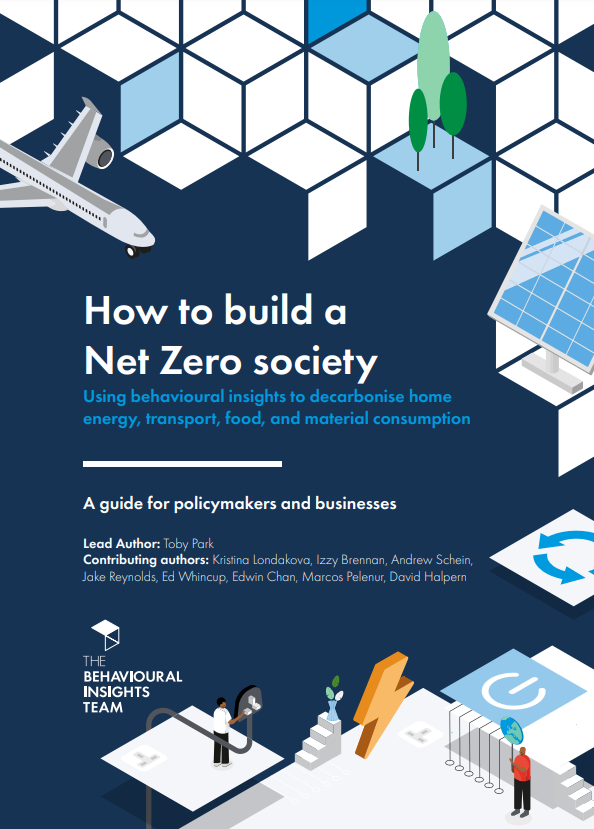Using behavioural insights to decarbonise home energy, transport, food, and material consumption.
 Tackling climate change is not only a moral and legal obligation in the UK, but is also the growth opportunity of the 21st century, and is backed by huge public support.
Tackling climate change is not only a moral and legal obligation in the UK, but is also the growth opportunity of the 21st century, and is backed by huge public support.
The Government’s own data reveal high public concern for climate change (84%), and polls have shown that over half of Brits think that 2050 is too late for Net Zero. Our own latest data show nearly 9 in 10 UK adults want government and business to show stronger leadership on this issue.
But delivery of Net Zero depends on substantial social and behavioural change.
Achieving such widespread changes in behaviour is one of the biggest public engagement, political, and technical challenges of the Net Zero transition. But it’s also a huge opportunity, with climate scientists pointing out the massive carbon reductions afforded if we all just adopt a handful of changes in our lives. Indeed, the Climate Change Committee estimates that 62% of the necessary emissions reductions in the UK depend on behaviour. The biggest carbon reductions (53%) come from the adoption of new technologies (electric vehicles, heat pumps, home energy-efficiency improvements), while 9% depend on lifestyle changes, including less red meat and dairy, more active travel, and less flying and driving. We further argue that much of the remaining 38% also depends on social and behavioural constraints, including public support for green infrastructure and policy.
The good news is that consumers want this change in their own lives, at least in principle. Our data show that 9 in 10 want to make more sustainable choices.
But many of the necessary behaviours are currently too expensive, too inconvenient, too unappealing, or simply not the default or norm we are used to. For instance:
- Heat pumps are too expensive
- Electric vehicle ownership is too inconvenient for those without off-street parking
- All of the 20 most popular dishes cooked by Brits are conventionally meat-based
- There are no cheap and quick alternatives to long-haul flights.
Put simply, our economy, infrastructure, norms, and media environment are not well designed for those who wish to live sustainably, but without great personal effort or compromise (that is, almost everyone). This may be why some – politicians included – recoil from the idea of widespread ‘behaviour change’, either disavowing what they see as the necessary means (a nanny-state telling people what to do) and/or the ends (an abstemious existence, sacrificing modern conveniences).
That’s not our approach. It’s not necessary, desirable, or even effective. As behavioural scientists and policy professionals, our job is to find a more practical pathway that is rooted in the evidence of what works, but which is also appealing in both its means and its ends – if it’s not, it won’t work.
By understanding:
- the barriers people face when trying to make greener choices
- the evidence and theory of behavioural change
- the complex processes of innovation and diffusion of ideas and technologies
- the data on public attitudes and support for policy
we can begin to sketch out a viable blueprint for a society in which green lifestyles can actually flourish. And flourish they must, whether you want to buy a new car, fix your boiler, go on holiday, or eat a sunday roast. All without wrecking the planet.
